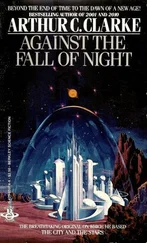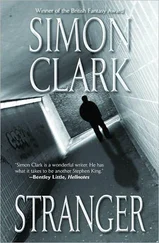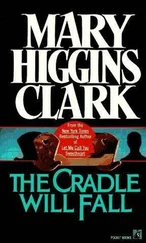Sam spoke under his breath to Jud. ‘What on Earth could Rolle give to a man like Carswell in exchange for his help?’
‘Probably what you always give when you do a deal with the devil.’
‘All right, people,’ Carswell said, clapping his hands. ‘You heard the man. My word is law. Get to work. Lee, I need you to go into town and bring the Reverend Thomas Hather to me – now. Jud, Sam. Strip the seats and the parcel shelves out of the bus. A task that will be made all the easier if you stop whispering at the back there. Oh, you’d best remove the windows from the bus first. Now, people, get busy.’
TWO
And that was how it started.
With a motley range of tools collected from the cars, Sam started slackening the nuts and bolts that held the bus seats to the floor. Jud started pulling the rubber trim from the windows until—
‘Mr Campbell, don’t waste time taking out the glass in one piece.’ Carswell’s voice came from the hayloft where he’d established a kind of combined observation platform and command post. ‘We don’t need the glass. Smash it out, man.’
‘Aye, aye, captain,’ Jud muttered under his breath. He picked up a hammer. ‘Cover your eyes.’ Then he walked along the aisle between the bus seats and smashed each window in turn. It sounded explosive in the confines of the barn. The toughened glass burst into thousands of white crystals, scattering across the floor.
Carswell called down to the schoolteacher who’d raised the objections earlier. ‘Get that broken glass swept up straight away, then find more lamps. Those men have got to be able to see what they’re doing.’
Sam returned to slackening the nuts with the wrench. They were all shiny and new, without a trace of rust, but they’d been tightened with a power tool. Each one took a hell of a lot of sweated curses to turn. Fortunately, once they had begun to turn, it was easy enough to unscrew them. After that, Sam simply heaved the whole seat out through the side of the bus where the glass had once been.
He paused to wipe the sweat from his eyes. In the cold air he noticed that his arms had actually begun to steam from the sheer body heat he was generating. All around the bus, men and women were working, each with their own special task allotted to them by Carswell. Now they knew what they were doing there was an air of determined industry. The air was full of the sounds of metal being hammered, saws cutting wood, planing, chopping, lines being tied. One of the men who Sam knew had been a garage mechanic in that faraway world of 1999 was cutting a hole right in the centre of the Range Rover’s roof. Then he pushed a hefty timber fence-post down into it until a good five feet of its length stuck straight up like the mast of a ship.
As Sam heaved yet another seat out through the glassless window he shook his head. Here they all were, busy as ants in a nest, but none of this activity made sense. He hadn’t a clue why the mechanic was fixing a timber mast onto the Range Rover and he didn’t know why Zita was running power cables from under the dashboard to what looked like stumpy timber wings that now jutted out from the car’s side.
All he did know for sure was that Carswell had told them they would transform the tour bus into some kind of battleship on wheels. But he still didn’t see how.
He glanced up at Carswell, who stood on the timber platform high above the barn floor. He was looking down, his hands on his hips, his feet apart, like some master architect overseeing the building of a great pyramid.
So the little workers who toiled below didn’t know the grand purpose behind their labour. That didn’t matter to Carswell. It didn’t matter a jot. He alone possessed the vision – the great, glorious, shining vision – of the finished machine.
Sam returned to a bolt that was more stubborn than the rest. His hands had already begun to blister despite the calluses they already bore from the ferry work; but he slipped the wrench over the securing nut, braced his foot against the seat and heaved.
As he did so he realised that he, too, had at last surrendered himself to Carswell’s authority.
The man might be a bastard. A high and mighty bastard at that, who had the conceit and arrogance of a Caesar, a Napoleon and a Mussolini all rolled into one.
But he was probably all that stood between Casterton and the barbarians.
THREE
At a little after two in the morning Sam Baker found himself walking down to the river.
It took a good 20 minutes to cross the snow-covered meadows to the water’s edge where Jud’s boat lay moored.
Sam walked with his head down against the stinging cascade of snowflakes. In one hand he carried a small lantern by its iron hoop handle. Unlike an electric torch that would have blazed a cone of white light through the blizzard, it threw little more than an orangey gleam onto the snow in front of him.
After five hours cranking that wrench to loosen off the seating bolts his hands felt hot enough to burst into flame. His knuckles bled where the wrench had slipped and his fists had rapped against the inner walls of the bus. Periodically he’d move the lantern from one hand to the other, then turn his free hand so that the palm was exposed to the falling snow. The icy cool of the flakes melting on the blistered skin was sheer bliss. There was something almost erotic in the sheer intensity of the sensation.
He paused for a moment to check where he was. In that snowfall it would be too easy to wander off from the buried path and lose himself in the woods.
There was no one about.
No houses.
The only sound was the faint crunch of snow beneath his boots.
He switched the lamp to his right hand.
As far as he could tell he was on the right track. The ground was running downhill now. He was probably only three or four minutes from the amphitheatre. The river and Jud’s boat would only be another 30 seconds or so walking time beyond that.
He walked faster.
He pulled the brim of his cap lower over his eyes to try to prevent the snow from actually striking his eyeballs.
And more than once he remembered that in this weather he could walk into a Bluebeard before he realised he was there.
What then?
A brief scuffle before Sam Baker’s blood stained the snow?
But there was a good enough reason for him to be here. In 1865 electric cables were only available for the telegraph system that sent Morse dashes and dots pulsing from town to town. They did have a bit of electric cable at the farm, but they needed more.
Jud had said there were a couple of spools of cable on the narrow boat, and as far as he knew it hadn’t been taken when a Bluebeard had looted it the day before.
The narrow boat itself was, of course, deserted. Jud and Dot had moved into the farmhouse until the danger was over.
One way or another , Sam thought grimly.
He’d left the people at the barn still working furiously. Already a strange clutch of vehicles were arising like mutant phoenixes from the carcasses of the original bus, van and cars that had come through the tear in time with them.
Years before, Sam had been given a book called Wacky Inventions . He’d loved to sit cross-legged on his bedroom floor and slowly turn the pages, looking at each of those bizarre inventions in turn.
Of course, they weren’t real inventions, not ones that would actually work, and you couldn’t seriously think of operating them without being dragged away to the nuthouse. They were cartoon-like drawings of machines that allowed you to combine two completely separate activities, such as a bath tub on wheels with an engine and a steering wheel that enabled you to go shopping while still taking a bath. That drawing showed a cheerful man sitting in bubbles up to his chest and scrubbing his back with a long-handled brush while selecting products from a supermarket shelf. Another favourite was a device that allowed you to read a book while taking the dog for a walk. A pole extended out from a headband, something like a unicorn horn. From a clip at the end hung your book, comfortably at eye level. (Illustration: an unfeasibly happy young woman walking her poodle through the park as she avidly read her novel.)
Читать дальше












